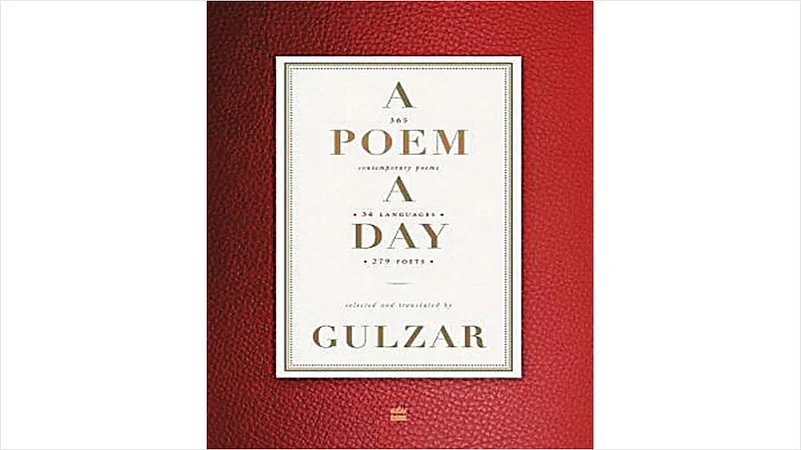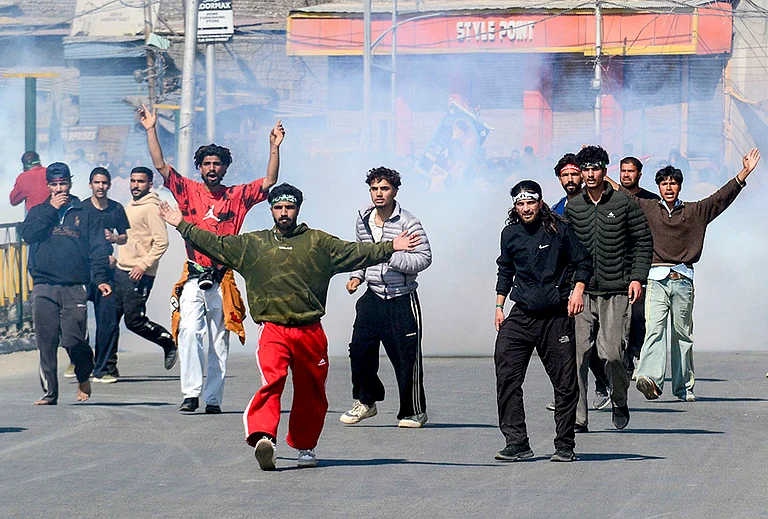It is a truism much acknowledged that translating Indian poetry into English is a task fraught with peril for, quite apart from the differences in literary cultures and sensibilities, there is also the matter of syntax and silences peculiar to our languages but alien for the English reader. And so, what is tremulously evocative in the original can come across as pedantic, if not banal, in its English translation. To attempt the task with a swathe of languages, including dialects like Sambalpuri, Khasi, Maithili, Konkani, among others, speaks of a poetic vision that is as vast as it is inclusive.
Unlike any other anthology of contemporary poetry in its scope and imagination, this large, handsome book lives up to the promise of its imposing appearance. Its contents include the works of 279 poets from 34 languages written in the seven decades since independence. Its editor, Gulzar, enjoys a formidable reputation as a film lyricist and a writer of poetry and fiction that has held up a mirror to the world. Here, he excels not just in his selection but in going a step further--not content with collecting available English translations of vernacular poetry, he has translated many of the non-Hindi/Urdu poems himself into easy Hindustani, making this a bilingual edition like none other. In doing so, he also makes a passionate plea for making Hindustani–rather than English–the link language.
Featuring poets from across India, it also includes poems from Sri Lanka, Bangladesh, Bhutan, Nepal and Pakistan. Taken together, the 365 poems in A Poem a Day present a kaleidoscope of the social, cultural and political life of the sub-continent. Making no distinction between ‘major’ and ‘minor’ languages and their literary cultures, Gulzar has chosen to include even those languages that do not have a script of their own, or whose poetry is written in the script of ‘better-known languages’. As he says in “A Note from Gulzar”: ‘There was a distinct local flavour to much of the poetry: the poetry from the Northeast, for example, I found very dynamic…. The poetry in tribal dialects was fascinating as well.’
Regarding the process of transcreation into Hindustani, Gulzar has tried to make it as interactive as possible, working with the original poet or seeking the help of fellow poets from languages unknown to him. Incidentally, he knows seven languages well: Urdu, Hindi, Punjabi, Bangla, English, Marathi and Gujarati. What leavens the process of transcreation is his own choice of words and silences. Look at this Telugu poem by Afsar Mohammad, rendered into English thus by Jamal Jones: Sure, we’ve found the dredger, but/ we called that the poem –/ you and me both./ We keep digging inside and outside, but / If you dig where there’s nothing, will you find a poem?
Gulzar transcreates it as follows: Maana, chhanni mil bhi gayi, par/ usko nazm kahoge kya?/ Tum aur main – hum dono,/ andar-baahar khudai karein, par/ wahan jahan par kucchh bhi nahi, kya nazm milegi?
Gulzar is especially mindful of ilaqauii zubanein (regional languages) and the concerns they raise, such as Flight by Manipuri poet Robin Ngangom, translated into English thus by the poet: The warning disguised as a message/ came before the village was up and about,/ and when they left/ they didn’t carry pots or blankets/ or even machetes./ As they went to the outpost of guardians,/ they left chickens running in the yard/ and the dog lazing on the steps.
And this by Gulzar in Hindustani entitled Farari: Sandes mein chhupi hui chetavani aayi/ gaon bhar ke jaagne utthne se pehle hii./ Kooch kiya jab –/ bhaande kambal, kuchh na saath liya, unn sab ne,/ aur koi hathiyar nahi/ Rakhwalon ki chaukiyon tak jaate jaate/ aangan mein daurhti murgiyan chhorhi/ aur – sirhiyon par sustaatey kuttey!
Read A Poem a Day for its astonishing range of voices, tones and the breadth of its concerns. Read it to be surprised anew by the glorious diversity of the Indian sub-continent.
(This appeared in the print edition as "Nazm For Our Souls" in the 'Book Review' section)





















